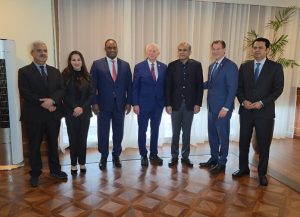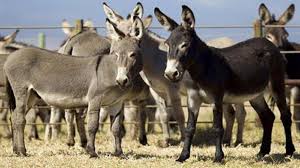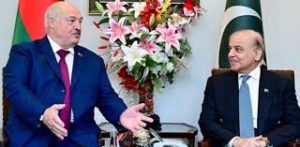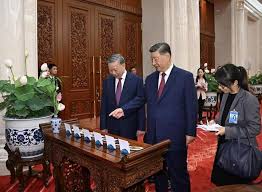Belgian PM backs EU bonds to boost defence spending
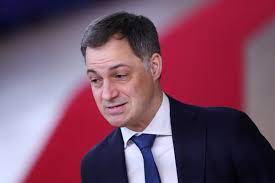
Brussels: Joint European Union borrowing could help fund higher defence spending but governments would still have to make tough political choices to sustain it, Belgian Prime Minister Alexander De Croo said.
Many European governments have committed to increasing military spending in response to Russia’s war in Ukraine and doubts about the US commitment to European security via NATO, called into question again in recent days by Donald Trump.
With many national budgets under strain, leaders including Estonian Prime Minister Kaja Kallas, French President Emmanuel Macron and European Council President Charles Michel have floated the idea of special EU bonds for defence investment.
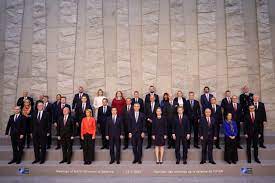
“I think that’s a sound idea and it’s something that could help us in speeding things up,” De Croo said in an interview.
“But at some point, you need to be able to sustain it and you can’t sustain it by borrowing all the time,” said De Croo, who will be among the leaders at this weekend’s Munich Security Conference, a major annual foreign and defence policy gathering.
“You need stable financing … this will demand some clear policy choices.”
Discussions on the idea are at an early stage, according to diplomats, with no detailed proposal on the table. To succeed, proponents will need to convince those traditionally sceptical of EU joint borrowing such as Germany, the Netherlands and Nordic nations.
However, supporters of the idea point out that EU countries agreed to joint borrowing of hundreds of billions of euros just a few years ago to help recover from the COVID-19 pandemic.
“It will not be easy, but as it has been done before, the precedent is there,” said a European diplomat.
EU industrial chief Thierry Breton last month broached the idea of a €100 billion European Defence Fund, though he said this would be up to the next European Commission due to be appointed at the end of this year.
European defence spending has been on an upward curve since Russia first invaded Ukraine and seized Crimea in 2014. NATO said on Wednesday it expected defence spending by its European members would grow by US$33 billion this year to US$380 billion.
NATO also said it expected 18 of its 31 members to meet its target of spending at least 2 per cent of national GDP on defence, without naming them.
Belgium will certainly not be among them. Last year, NATO estimated Belgium would spend 1.13 per cent of GDP on defence in 2023, second lowest among NATO members. The country is currently projected to hit the 2 per cent target only in 2035.
De Croo, a liberal who leads a multi-party government, said he would campaign in a general election in June to “drastically” speed up that timetable.
He also called for EU countries to cooperate more closely on arms production. He said the sector had been “very fragmented” as militaries preferred to buy from their own national suppliers rather than shop around.
Some efforts to get EU nations and companies to team up have struggled. A joint procurement initiative to get 1 million ammunition rounds to Ukraine within a year would only reach half its target by the deadline, officials said last month.
But De Croo insisted the overall picture was improving.
“We see throughout Europe a lot is happening in cooperation between national players, in mergers,” he said.
On a long-running debate about the possibility of an EU army, De Croo said it was better to let integration among European militaries grow “organically” than try to impose a structure on 27 member countries.
“Let countries that want to integrate and to work together, just let them do it,” he said, citing close Belgian military cooperation with France and the Netherlands.
“It will be at different speeds and different configurations. But that works much better than trying to build something on the level of 27, which is just going to take too much time.”

